Sending your little one off to preschool programs can be a tough decision. However, the reason why preschool matters are that the benefits of Pre-K education can set your child up for both short and long-term success. To help decide if preschool is a good choice for your family, we’ve summarized some of the benefits below.
Preschool programs give your child a solid foundation in essential skills, increase social and emotional learning, inspire lifelong learning, introduce them to play-based learning, increase academic development, prepare kids for classroom routine, and teach responsibility and self-help skills.
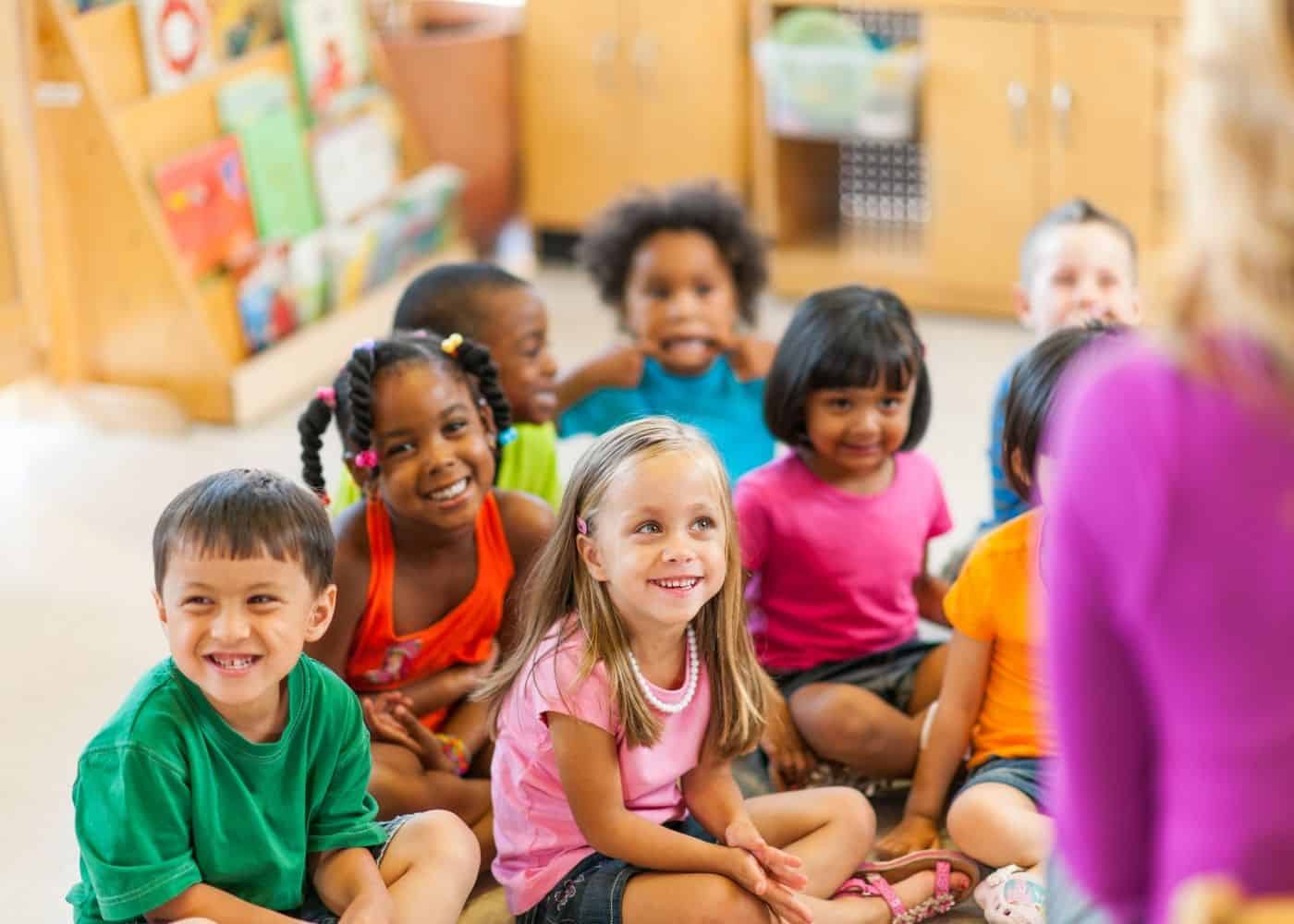
And, if you have Kindergarten students in your house, you may want to read this article on Kindergarten readiness!
Before we dive into the specifics about why preschool programs are a good choice for most families, though, I want to make a note here. Preschool can be downright expensive. If this isn’t attainable for you and your little ones, don’t fret!
What if preschool isn’t an option?
Most local community centers have both structured and drop-in programs. Many of the benefits below apply to these types of programs, too! So, take a look at what your community offers and consider placing your child in a program that aligns with their interest. Or, maybe even help them find a new interest this way!
But, if you’ve decided that your little one should attend a preschool, that’s awesome! (If you need a little more convincing, then keep reading!) Either way, I would advise that you go for a tour of the centers you’re interested in before enrolling your child.
It’s essential to make sure that the center is exactly what your family is looking for. This visit is your opportunity to make sure that they can meet all your child’s needs as a facility. There are also lots of important questions to ask on this visit, so we put together a list here.
One last tip: Sign up before you need to. Many preschools have long waitlists! If you’re considering enrolling your child, I would advise that you sign up at least six months to a year in advance. Signing up early ensures that they will get a spot. That being said, call local programs because the wait times vary significantly! Since preschool students start between ages 3-5, this means you’ll want to start thinking about enrolling around their second birthday.
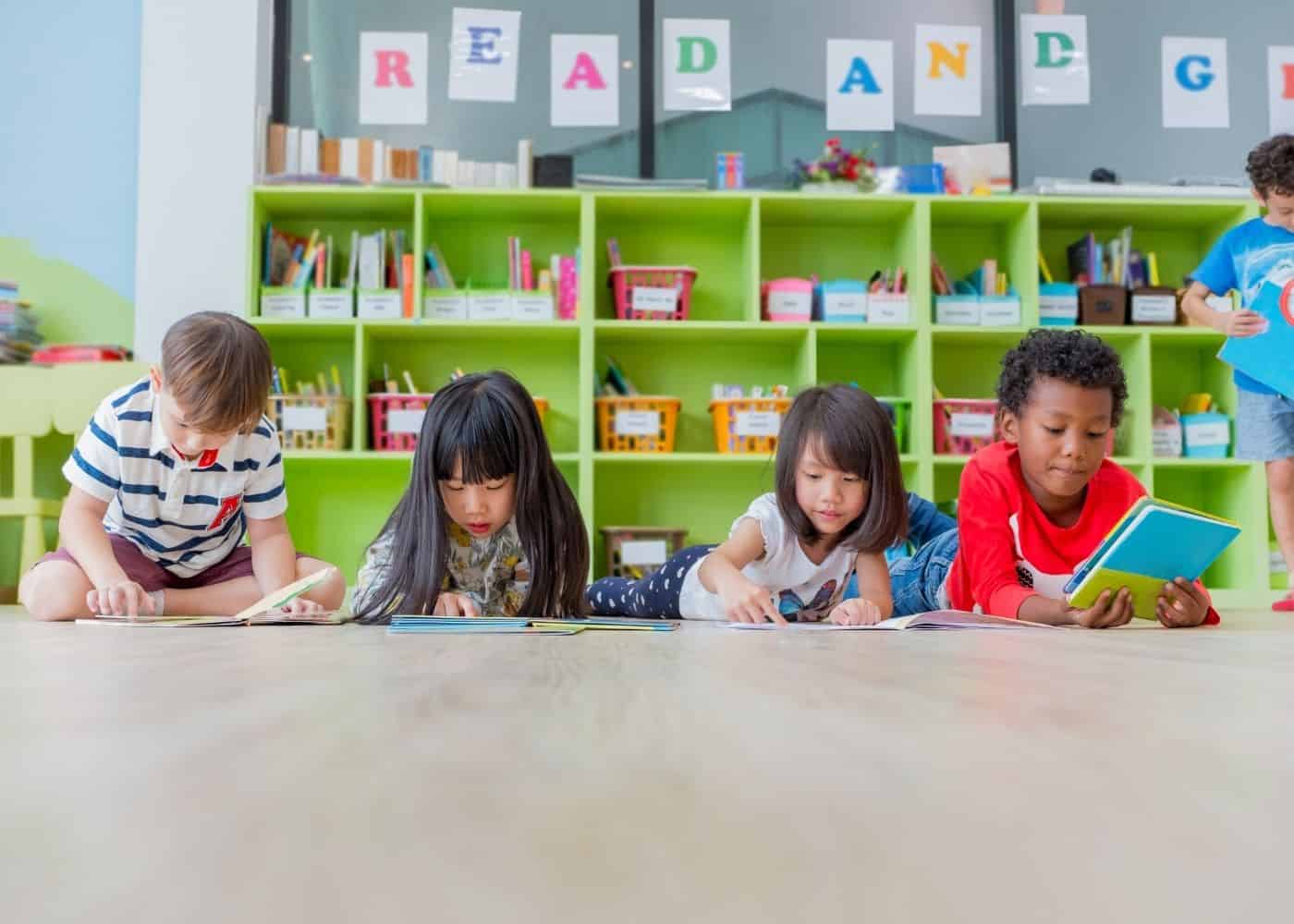
Okay, so what do preschool children learn and why is it ideal for them to attend preschool? Here is my list of the benefits of preschool (in no specific order)!
Above all, though, it is important to look for quality early education. A high-quality preschool will be best equipped for high-quality instruction! And, high quality is not synonymous with high cost – It’s more about the preschool teachers and the preschool program is a good fit for your child. Children attending preschool spend a lot of time there, so you’ll want to make sure it’s a good fit for everyone.
7 Reasons why preschool matters
1. Strong foundation in essential skills
Having a solid foundation in learning sets children up for success in their later years. Preschool teachers are trained to deliver age-appropriate instruction that aligns with the local preschool curriculum, much like elementary teachers follow a training practicum in their classrooms.
Through this curriculum, preschool teaches children essential skills, including both academic concepts and social/school-readiness skills that will increase your child’s success once they reach Kindergarten. Your children will also learn fine and gross motor skills, which are the foundation of early developmental skills.
Read more about Kindergarten readiness.
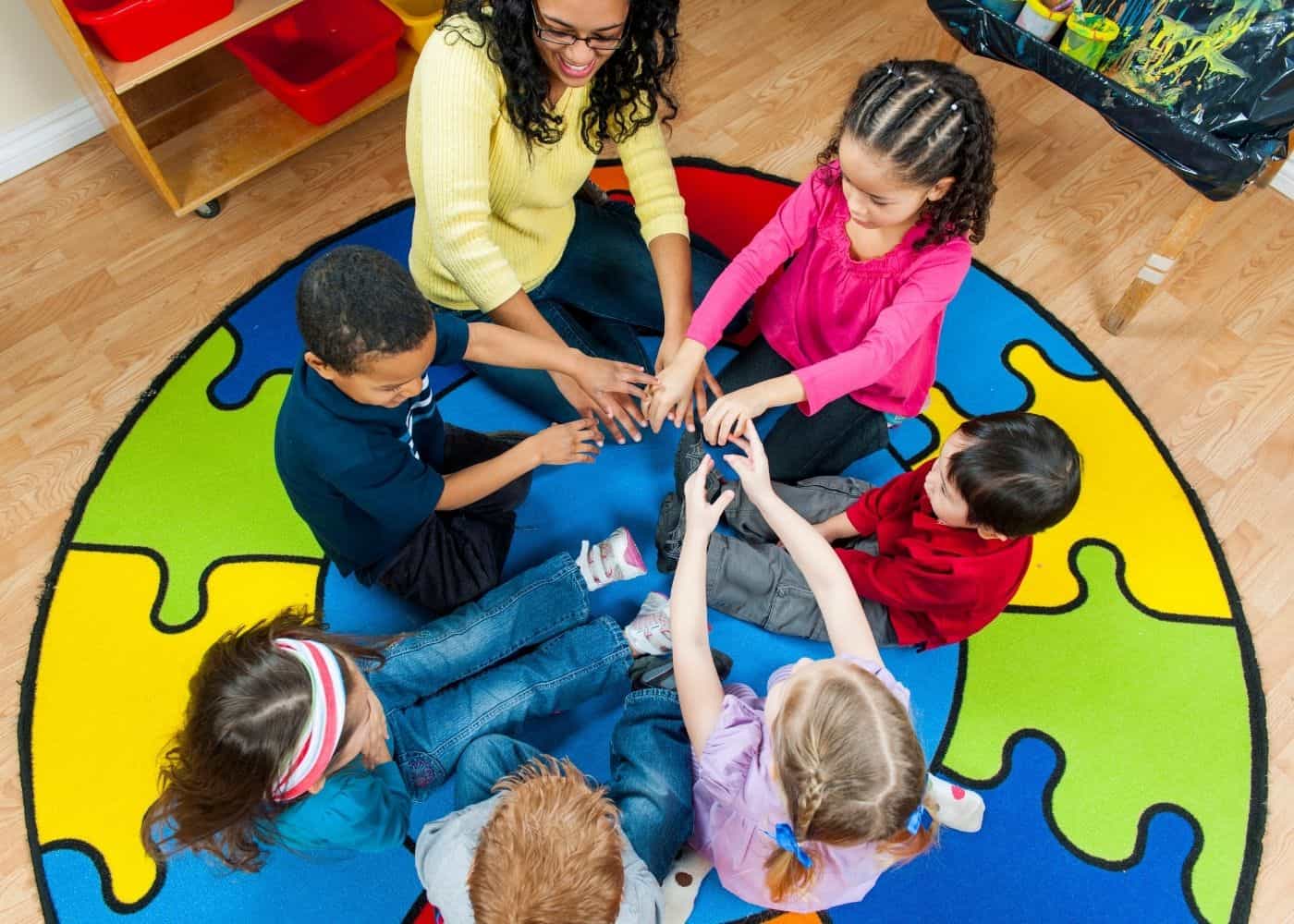
2. Social skills and emotional learning
Self-regulation is a big part of emotional development and early childhood education. Learning to listen to teachers, play with friends, and self-regulate when feeling angry or upset are key takeaways your child will take away from preschool.
Learning these skills before Kindergarten is super helpful for your child, too! Once in school, they will have much longer days. Understanding how to navigate their emotions and how to positively interact with their peers will help them feel ready for Kindergarten, when they will rely on their social skills every day as they learn and play with other children. I feel that this is exceptionally true today, where so many toddlers were unable to interact with children their own age during the pandemic. This is a great chance for a positive social experience in their early years!
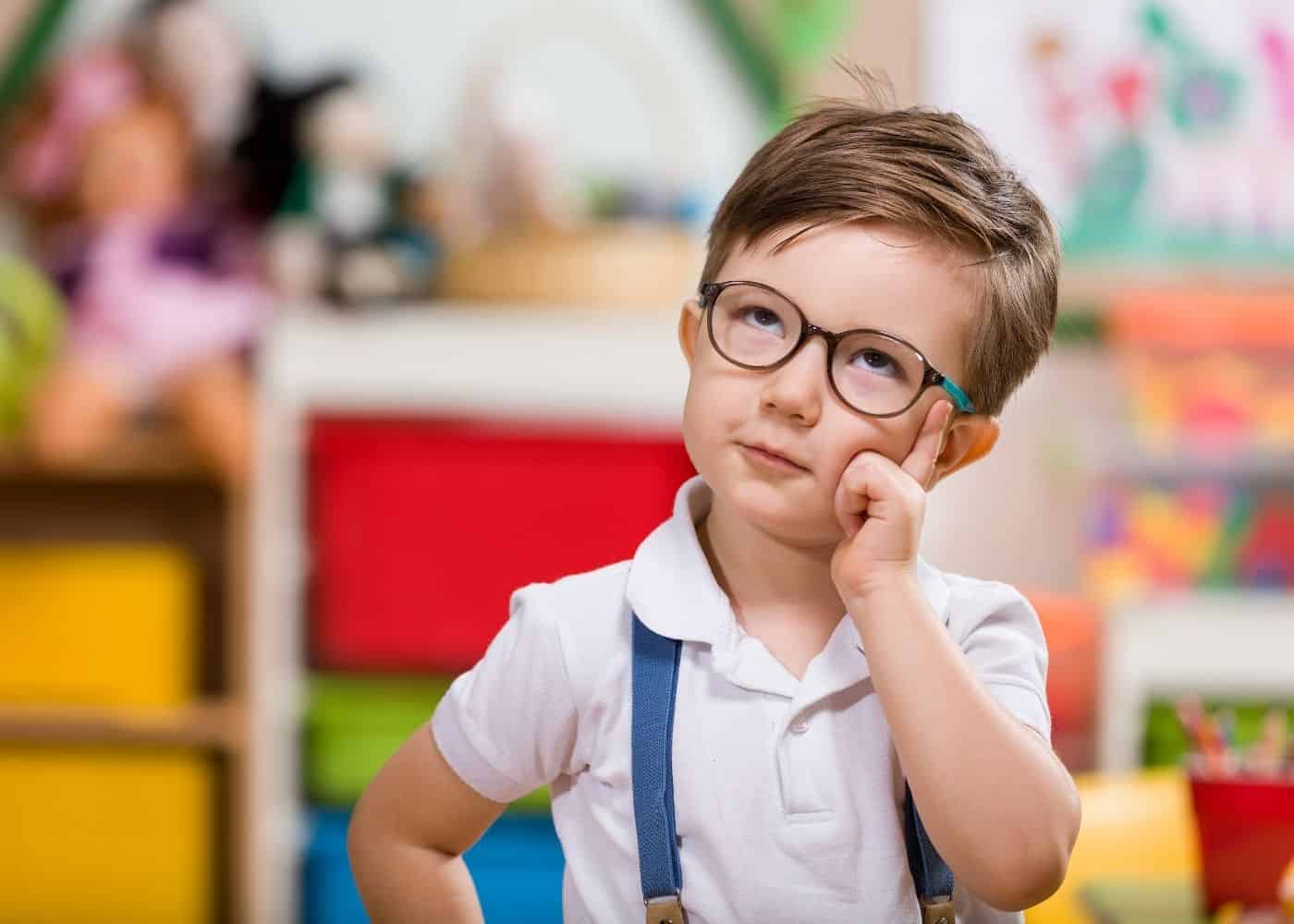
3. Inspires lifelong learning
Creativity and curiosity are fostered in preschool settings! Your child will have the chance to learn basic academic concepts throughout the day, such as basic math, science, and literacy. Studies, like this one, have also shown that children who have positive experiences with learning in their early educational career are more likely to experience success in their later elementary years, too.
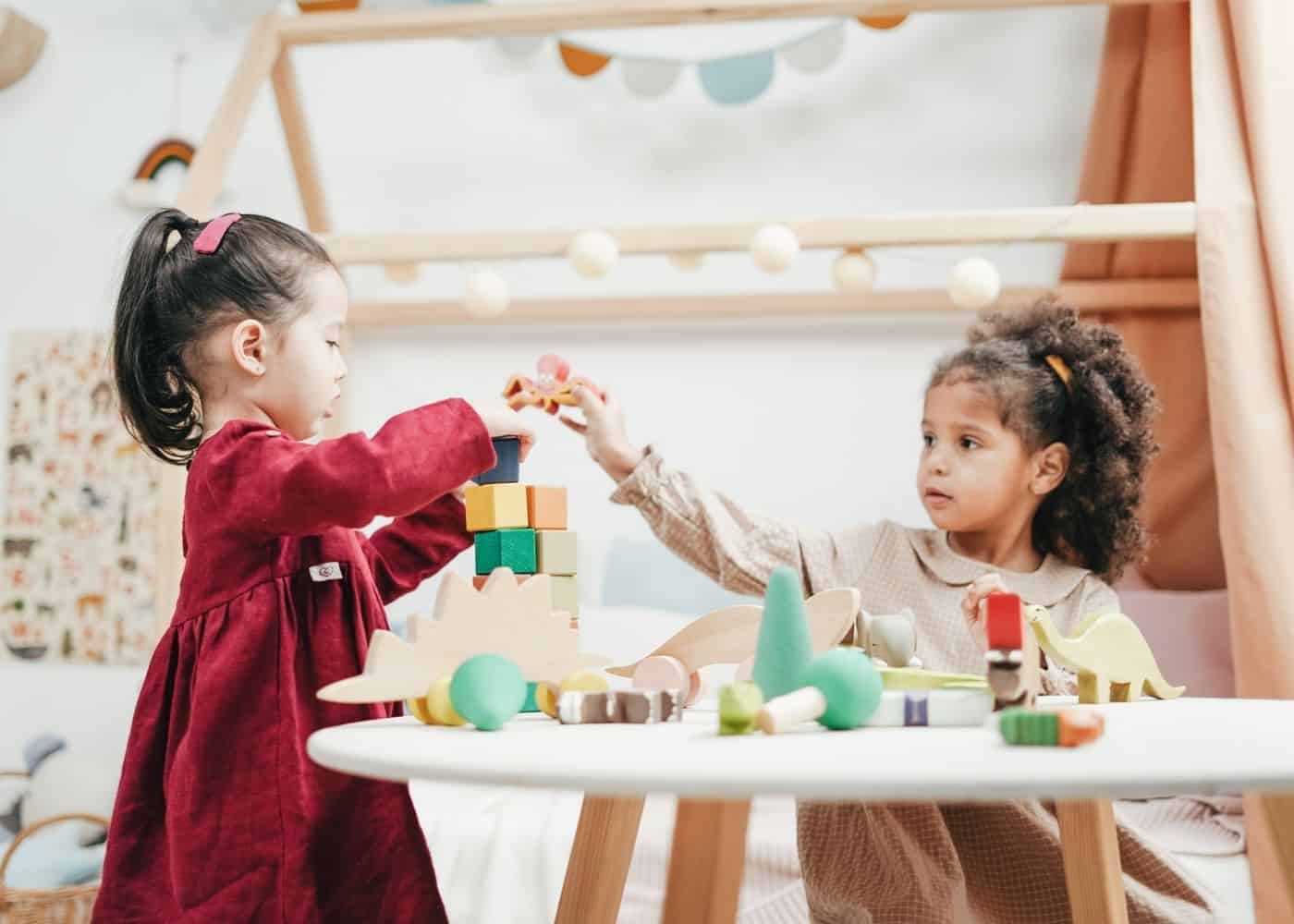
4. Play-based learning
Play-based learning is highly emphasized in preschools. Little ones simply don’t have the attention spans than we do as adults, and a school’s learning program will reflect this. Schools offer “centers” (basically tables with free-play educational toys) for your children to use between activities so that even while they’re playing, they’re learning! Many will have sensory bins, too, which are great for young learners. After all, education isn’t exclusive to worksheets and tests, like so many of us experienced in our early years!
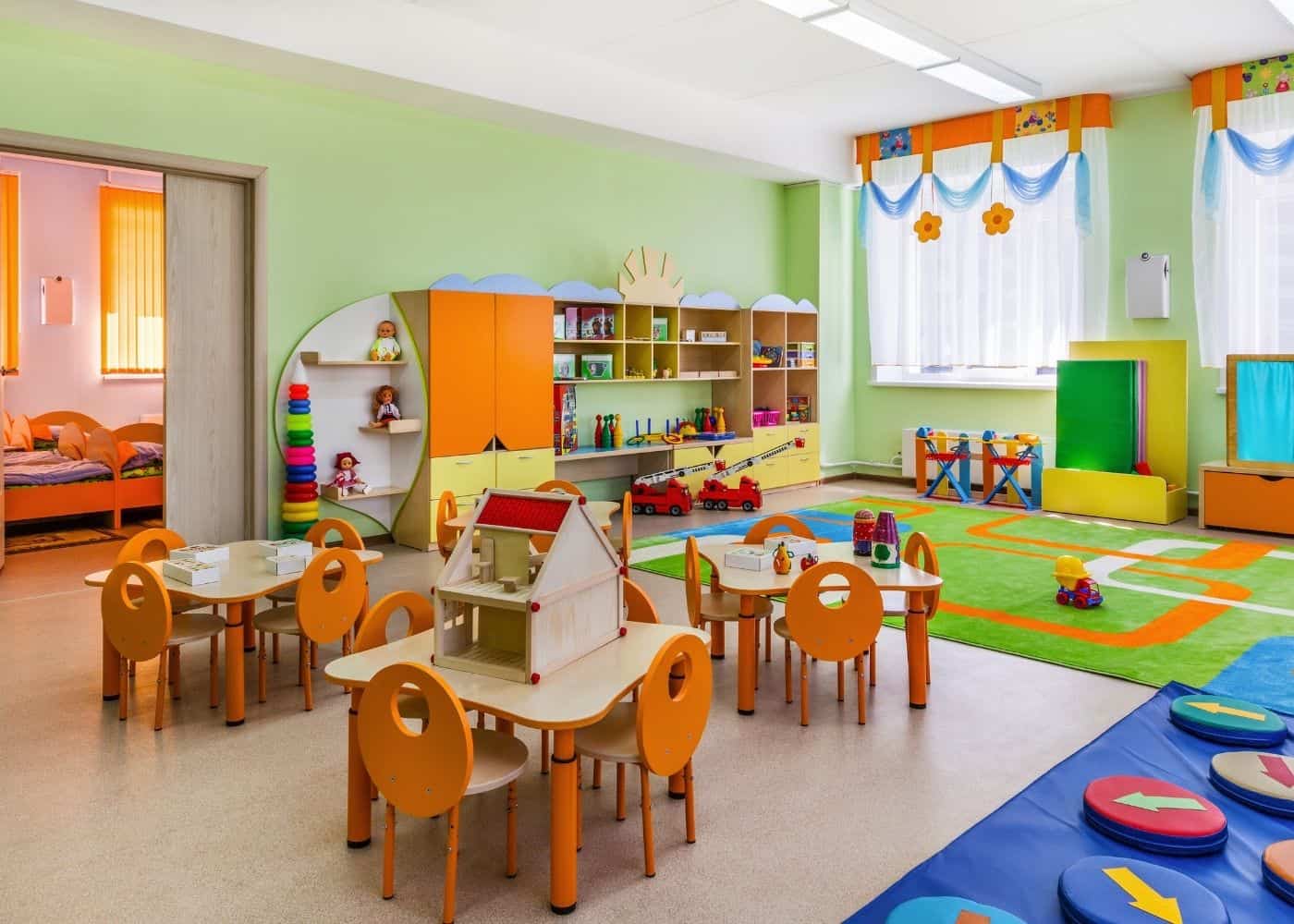
5. Academic development
Kindergarten can be an overwhelming academic experience for both children. There is simply so much to learn all at once! Not only are they learning hard skills (teachables), but they’re also learning many soft (social) skills as well. Having a solid foundation in academic skills, like the ones that preschool provides, means your child will be one step ahead once they’re in elementary school. The familiarity with academic concepts will help them feel more comfortable learning in later years, too.
In preschool, your child will learn about a vast variety of concepts, including shapes, colors, numbers, basic literacy, and so much more. Their teacher should be a trained Early Childhood Educator (ECE), who will have the academic background necessary to teach these skills to your preschooler.
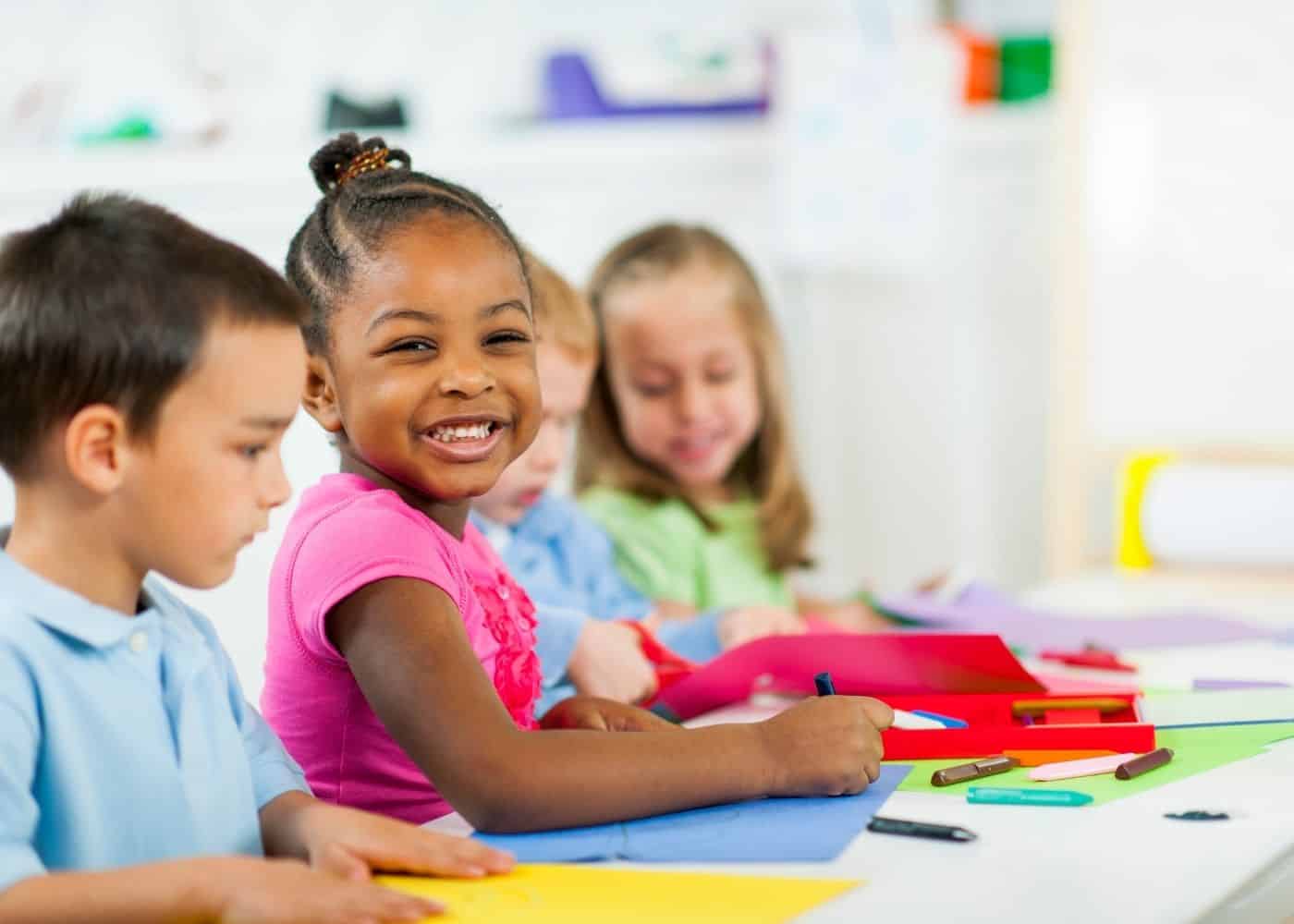
6. Preschool routine
Adjusting to an academic routine can also be tough at first. Thankfully, a big part of preschool is exposing children to the learning environment. This introduces them to things that they will see again in Kindergarten, like individual and group work, circle time, structured lunch and snack times, and just having a schedule in general.
Attending preschool also helps families adjust to separation, which benefits both caregivers and the child. Leaving your child in someone else’s care for the entire day is a big step, after all! Since preschool is significantly shorter than a day than Kindergarten, it’s marginally easier to handle the separation from your child when you know you will be seeing them soon.
Kindergarten teachers will (generally) follow similar structures to the preschool environment, especially with play-based learning. That being said, all elementary schools are different!
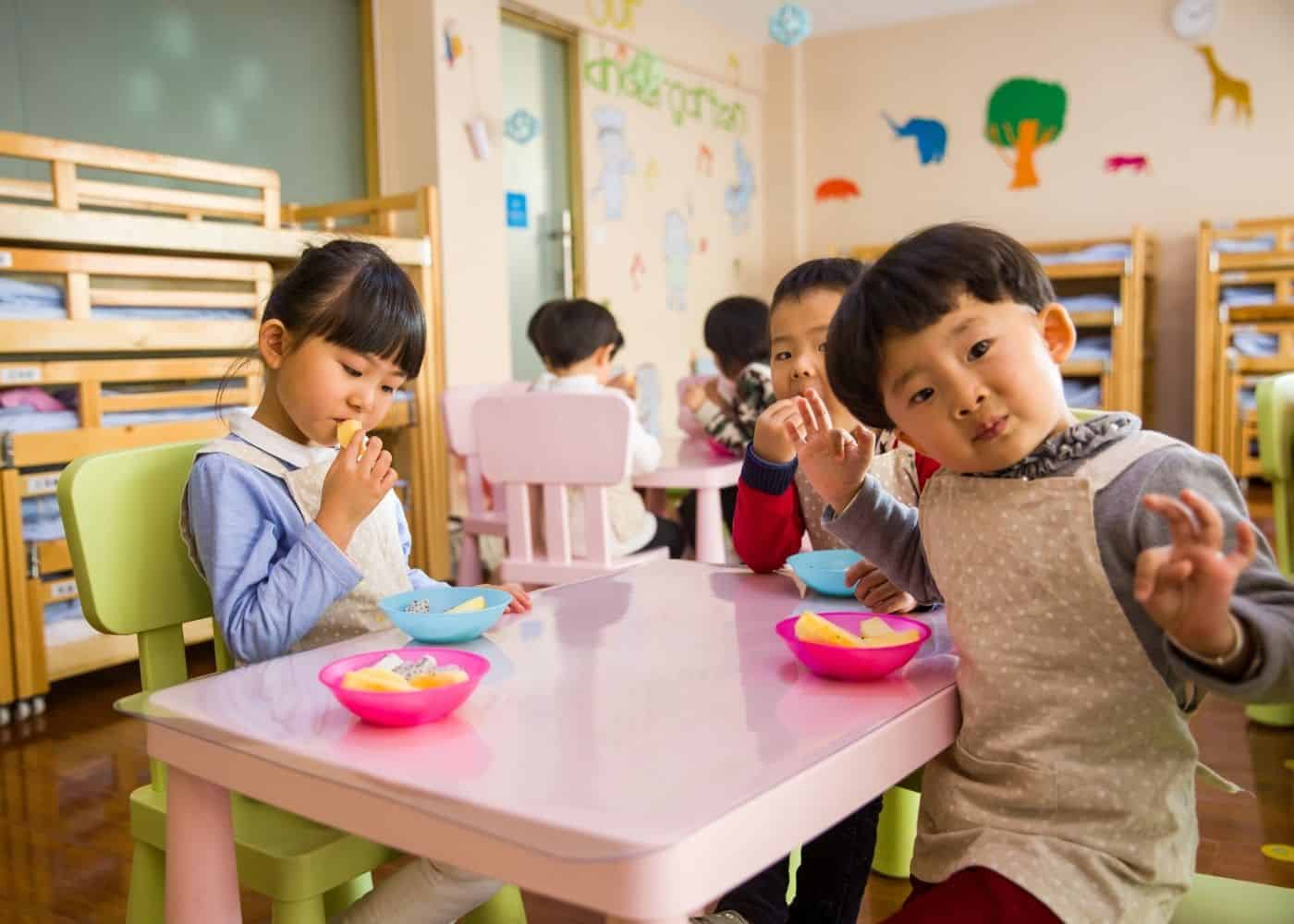
7. Responsibility and self-help skills
Many classrooms have “class jobs” for children, which require them to do simple tasks like being the door holder for the day, being a teacher’s helper for setting up art supplies, or making sure all of the chairs are tucked in after snack. The main point of all of these things is to instill a sense of responsibility in their learning environment.
Another form of responsibility that your child will learn is cleaning up after themselves. They will learn to put their outdoor gear away, clean up their space after lunch and snack, and how to put their art creations in the drying racks, for example.
In terms of self-help, your child will have the opportunity to learn essential life skills like how to get dressed to go outside, to wash their hands before and after they eat, and how to feed themselves at lunchtime.
What if I have multiple ages of children?
Some child care centers will also offer childcare for younger children. This will be provided in a different room so that your preschoolers can have quality early education that’s appropriate for their age. The childcare space will likely be more like a nursery.
Conclusion
There you have it, folks! Here are just some of the reasons why preschool matters. We hope this has helped decide whether you should get your child to attend preschool or not!
If you’re still undecided, I would urge you to call your local pre-k school and arrange a meeting to talk about your options. Finding a high-quality preschool program that suits your family’s needs is important, so I’d suggest calling them before enrolling anyway.
Overall, though, preschool education offers your children a great chance to develop essential skills while receiving early childhood care. Children learn a lot of life and academic skills during their preschool education experience, including developing behavior management skills, communication skills, social-emotional skills, and will be achieving academic milestones appropriate for their age. These opportunities for childhood development can be given at home, but preschool contributes consistent and enduring benefits to your child’s early schooling experience.
If you have younger ones at home, too, some preschools offer childcare programs as well. Some centers accept babies, too. Having multiple kids attend the same childcare centers makes it easier commute-wise!

Leave a Reply